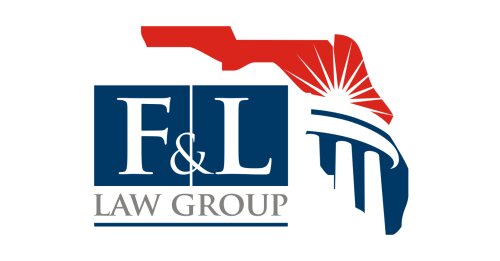Best Restructuring & Insolvency Lawyers in Naples
Share your needs with us, get contacted by law firms.
Free. Takes 2 min.
List of the best lawyers in Naples, United States
About Restructuring & Insolvency Law in Naples, United States
Restructuring and insolvency law in Naples, United States, is a specialized area that deals with the financial distress of businesses and individuals. This field encompasses processes designed to help debtors reorganize or resolve their financial obligations while protecting their assets and optimizing outcomes for creditors. Naples, located in Southwest Florida, follows federal bankruptcy statutes and applicable state laws specific to Florida. These laws provide structured solutions for individuals and businesses facing insolvency, including bankruptcy filings, debt restructuring, liquidation, and creditor negotiations.
Why You May Need a Lawyer
Restructuring and insolvency matters are complex, involving multiple parties and legal structures. There are various situations where seeking legal help is essential in Naples:
- You or your business are unable to meet your debt obligations and face potential foreclosure, repossession, or lawsuits from creditors.
- You want to explore options to avoid bankruptcy, such as debt restructuring or negotiating with creditors.
- You need to file for bankruptcy under Chapter 7, Chapter 11, or Chapter 13 and require guidance through the process.
- Your business needs to reorganize its debts to continue operations or facilitate a sale.
- You are a creditor seeking to protect your interests when a debtor files for bankruptcy or proposes a debt restructuring plan.
- You want to understand your rights concerning asset protection and exemptions available in Florida.
Legal advice ensures that you understand your options, comply with all formalities, avoid pitfalls, and maximize your chances of a successful financial outcome.
Local Laws Overview
While bankruptcy is governed by federal law under the United States Bankruptcy Code, state and local rules in Naples, Florida, have a significant impact on insolvency proceedings. Here are some important aspects for residents and businesses in Naples:
- Exemptions: Florida law provides some of the strongest protections for personal and homestead property, including unlimited homestead exemption (subject to acreage and residency requirements) and personal property exemptions for bankruptcy filers.
- Bankruptcy Courts: Naples falls under the Middle District of Florida, which has specific local bankruptcy rules and procedures. Bankruptcy filings must adhere to these local processes.
- Foreclosure Procedures: Florida is a judicial foreclosure state, which means that lenders must go through the courts to foreclose on residential or commercial property. This often slows down the process and gives debtors more time to explore restructuring options.
- Debt Collection: Florida and Collier County (where Naples is located) regulate the practices of debt collectors and provide protections against unfair or abusive collection practices.
- Alternatives to Bankruptcy: Debt workout and restructuring options are available and can often be negotiated outside of court, though legal guidance is strongly recommended.
Frequently Asked Questions
What is the difference between restructuring and insolvency?
Restructuring involves reorganizing debts and financial affairs to make obligations more manageable, allowing continued operations or avoiding bankruptcy. Insolvency is the state of being unable to meet debts as they come due, which may lead to bankruptcy or liquidation.
What types of bankruptcy are available in Naples?
Individuals can file for Chapter 7 (liquidation) or Chapter 13 (debt repayment plan). Businesses may file under Chapter 7 or Chapter 11 (reorganization), depending on their situation.
How does Florida’s homestead exemption work?
Florida offers generous protection for primary residences, exempting them from creditors in bankruptcy, subject to property size and residency rules. This can protect your home during insolvency proceedings.
Can creditors repossess my property during bankruptcy?
Filing for bankruptcy generally triggers an “automatic stay,” temporarily stopping most collection activities, foreclosures, and repossessions while the court processes your case.
How long does bankruptcy stay on my credit report?
A Chapter 7 bankruptcy can remain on your credit report for up to ten years, while Chapter 13 typically stays for seven years.
Can I keep any assets if I file for bankruptcy in Naples?
Yes, Florida exemptions allow you to keep certain protected assets, such as your home (homestead), some personal property, retirement accounts, and specific insurance benefits.
Is business restructuring possible without bankruptcy?
Yes, businesses can negotiate debt modifications, settle debts, or extend repayments with creditors through voluntary arrangements without formal bankruptcy. Legal advice is crucial in these situations.
Are creditors required to accept restructuring proposals?
No, creditors are not required to accept restructuring proposals. However, experienced legal representation can negotiate favorable terms and increase the likelihood of creditor agreement.
What should I do if I receive a foreclosure notice?
Contact a restructuring and insolvency lawyer immediately. Foreclosure is a legal process in Florida, and there may be solutions such as loan modification, bankruptcy, or defense strategies to help you keep your home.
How much does it cost to hire a restructuring and insolvency lawyer?
Costs vary depending on the case's complexity, attorney experience, and type of services needed. Many lawyers offer initial consultations to discuss your options and fees before you commit.
Additional Resources
If you are seeking more information or guidance on restructuring and insolvency in Naples, consider the following resources:
- United States Bankruptcy Court - Middle District of Florida: Offers court forms, local rules, and case information.
- Florida Bar Association: Provides lawyer referral services and educational materials about bankruptcy and debtor rights.
- Florida Department of Financial Services: Offers resources on debt management, foreclosure prevention, and consumer protection.
- Local Legal Aid Organizations: Non-profit groups that offer free or low-cost legal assistance to qualifying individuals facing financial hardship.
- Financial Counseling Services: Certified credit counselors can help you understand your financial situation and discuss alternatives to bankruptcy.
Next Steps
If you believe you need legal assistance with restructuring or insolvency in Naples, United States, consider taking the following steps:
- Assess your financial situation and gather any relevant documentation, such as debt statements, income information, and notices from creditors.
- Contact a restructuring and insolvency lawyer in Naples to discuss your circumstances. Many offer consultations to help you understand your rights and options.
- Ask questions about the process, potential outcomes, legal fees, and what you can expect if you proceed with bankruptcy or restructuring.
- Consider additional support, such as credit counseling or financial planning, to improve your long-term financial health.
- Stay proactive and seek help early to maximize the available solutions and protect your assets.
Legal matters involving restructuring and insolvency are often time-sensitive. Acting quickly and seeking informed legal guidance can help you navigate the process and work towards a more stable financial future.
Lawzana helps you find the best lawyers and law firms in Naples through a curated and pre-screened list of qualified legal professionals. Our platform offers rankings and detailed profiles of attorneys and law firms, allowing you to compare based on practice areas, including Restructuring & Insolvency, experience, and client feedback.
Each profile includes a description of the firm's areas of practice, client reviews, team members and partners, year of establishment, spoken languages, office locations, contact information, social media presence, and any published articles or resources. Most firms on our platform speak English and are experienced in both local and international legal matters.
Get a quote from top-rated law firms in Naples, United States — quickly, securely, and without unnecessary hassle.
Disclaimer:
The information provided on this page is for general informational purposes only and does not constitute legal advice. While we strive to ensure the accuracy and relevance of the content, legal information may change over time, and interpretations of the law can vary. You should always consult with a qualified legal professional for advice specific to your situation.
We disclaim all liability for actions taken or not taken based on the content of this page. If you believe any information is incorrect or outdated, please contact us, and we will review and update it where appropriate.









